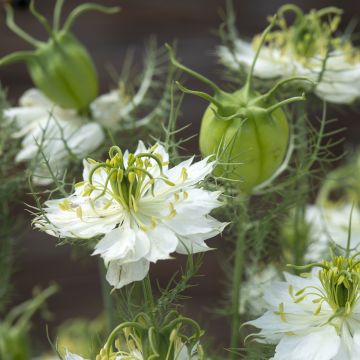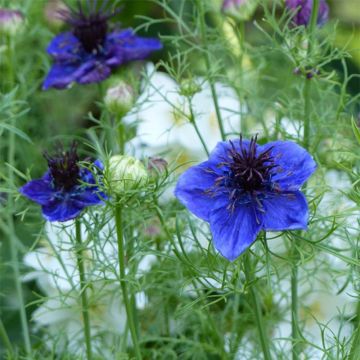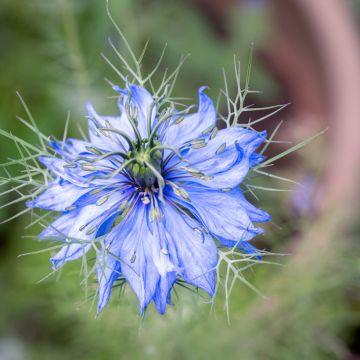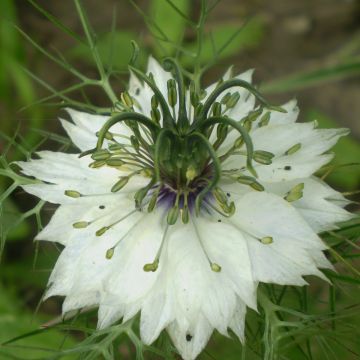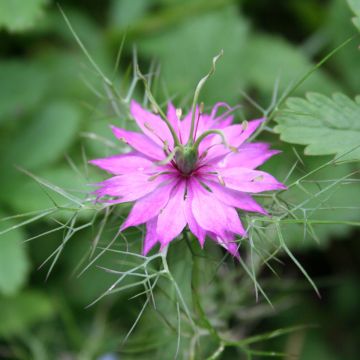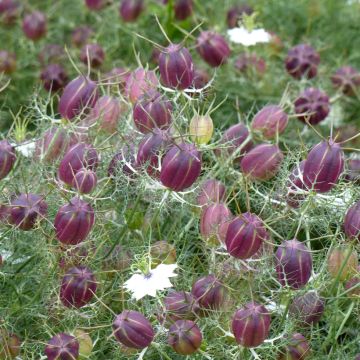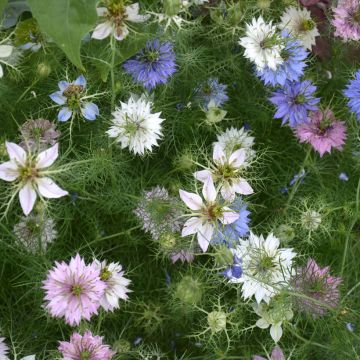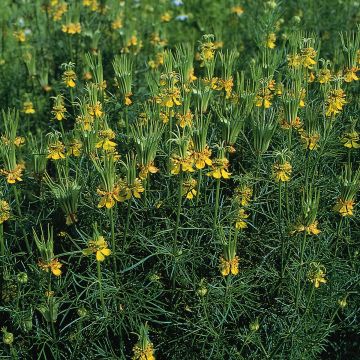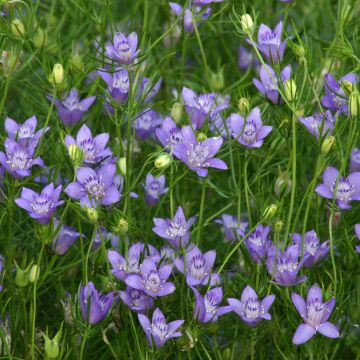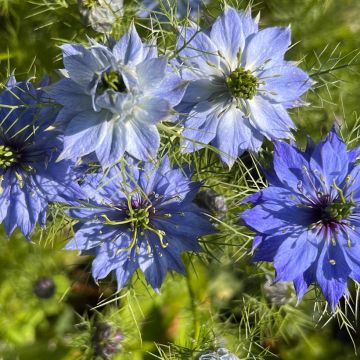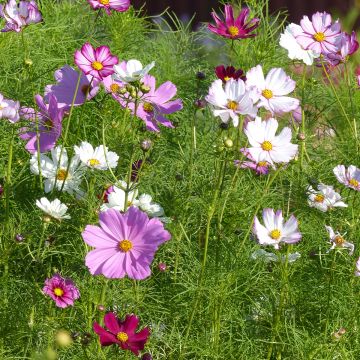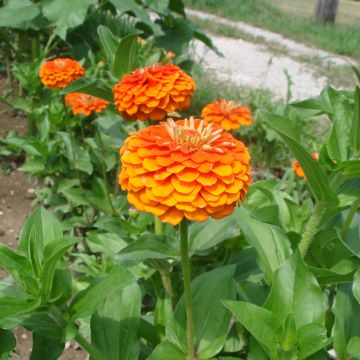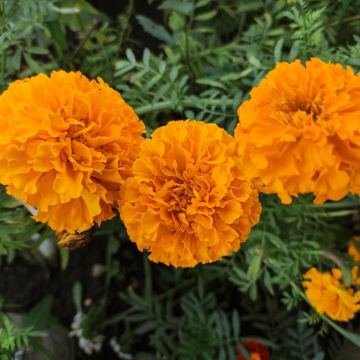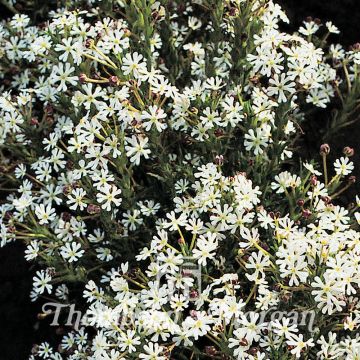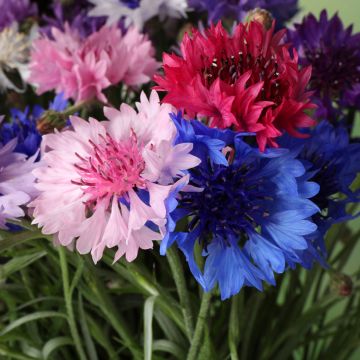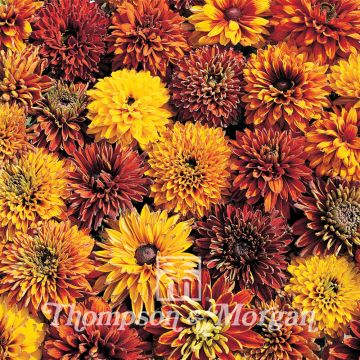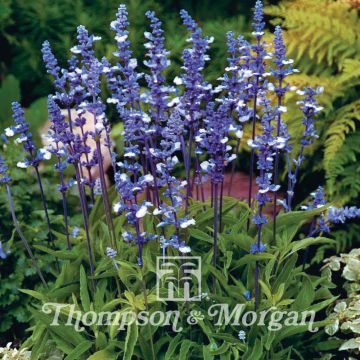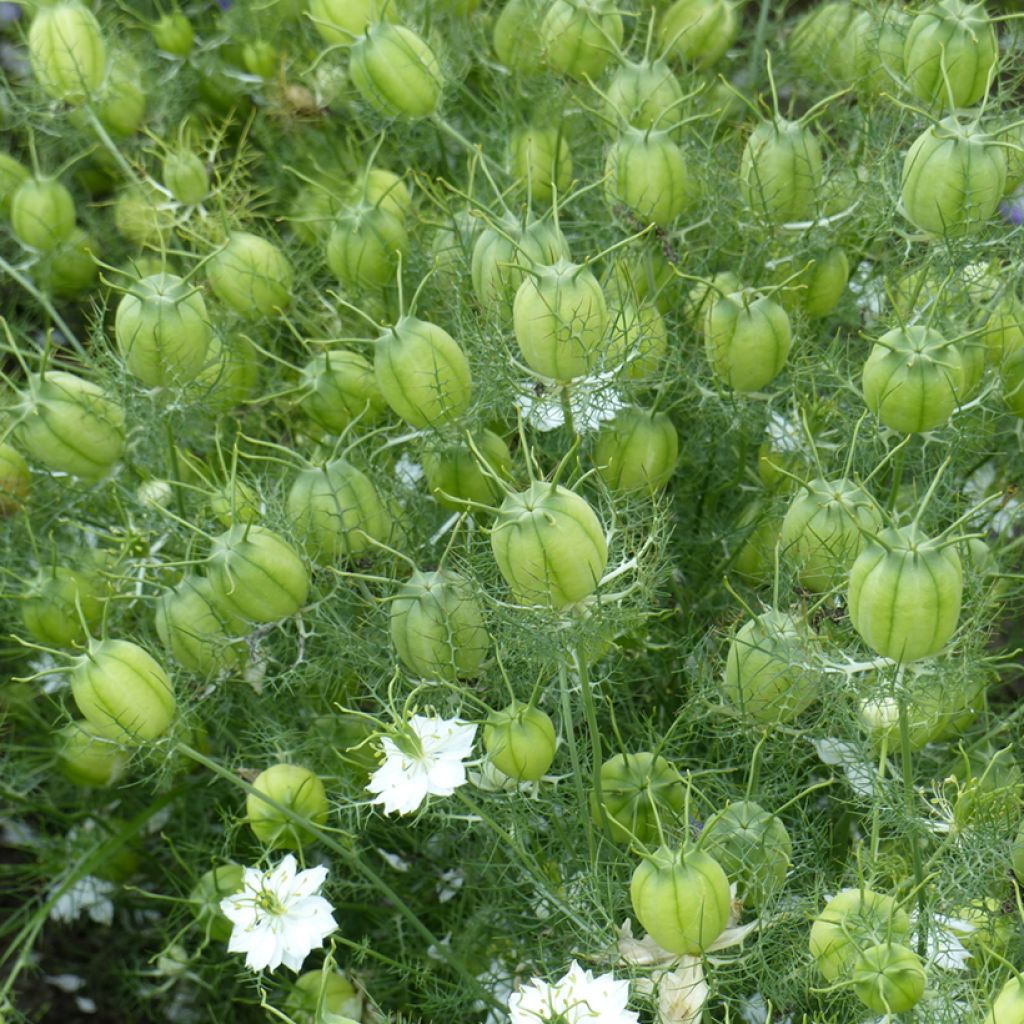

Love-in-a-mist Albion Green Pod Seeds - Nigella damascena
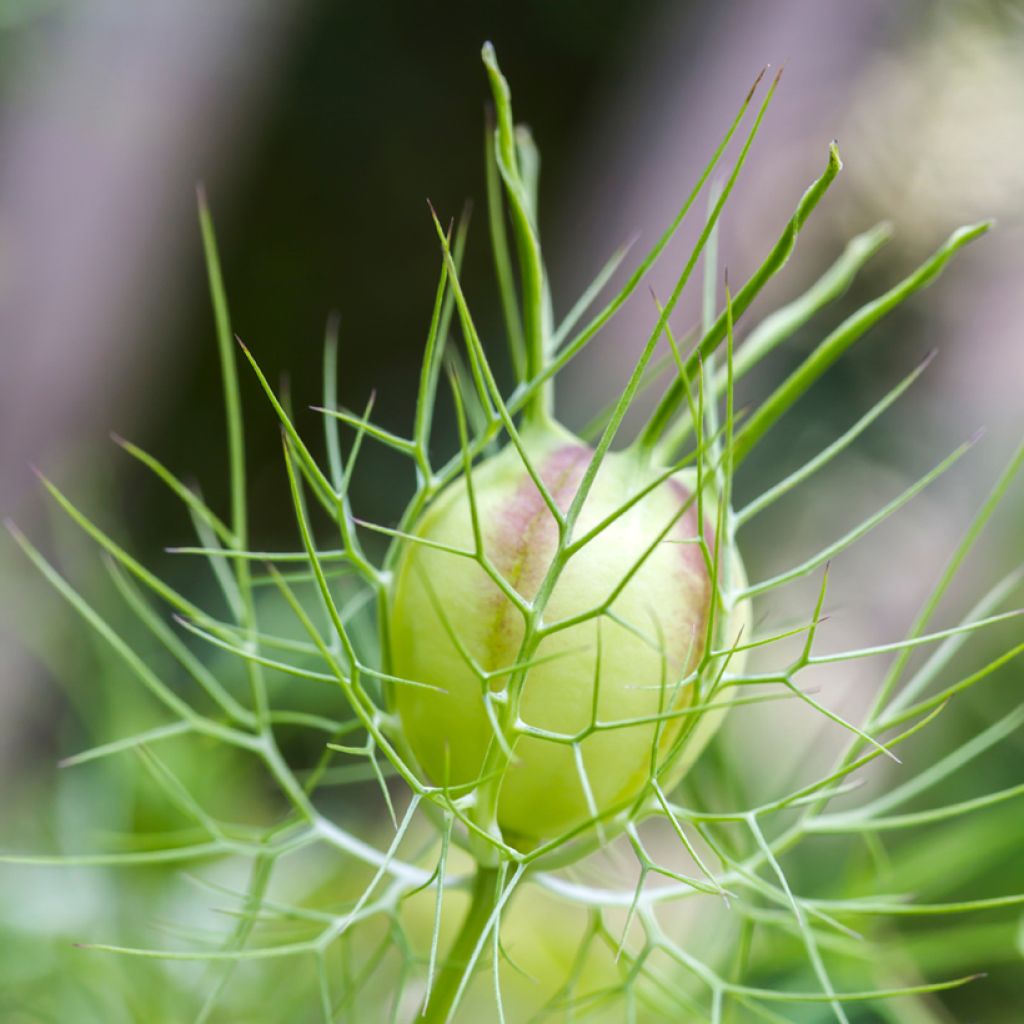

Love-in-a-mist Albion Green Pod Seeds - Nigella damascena
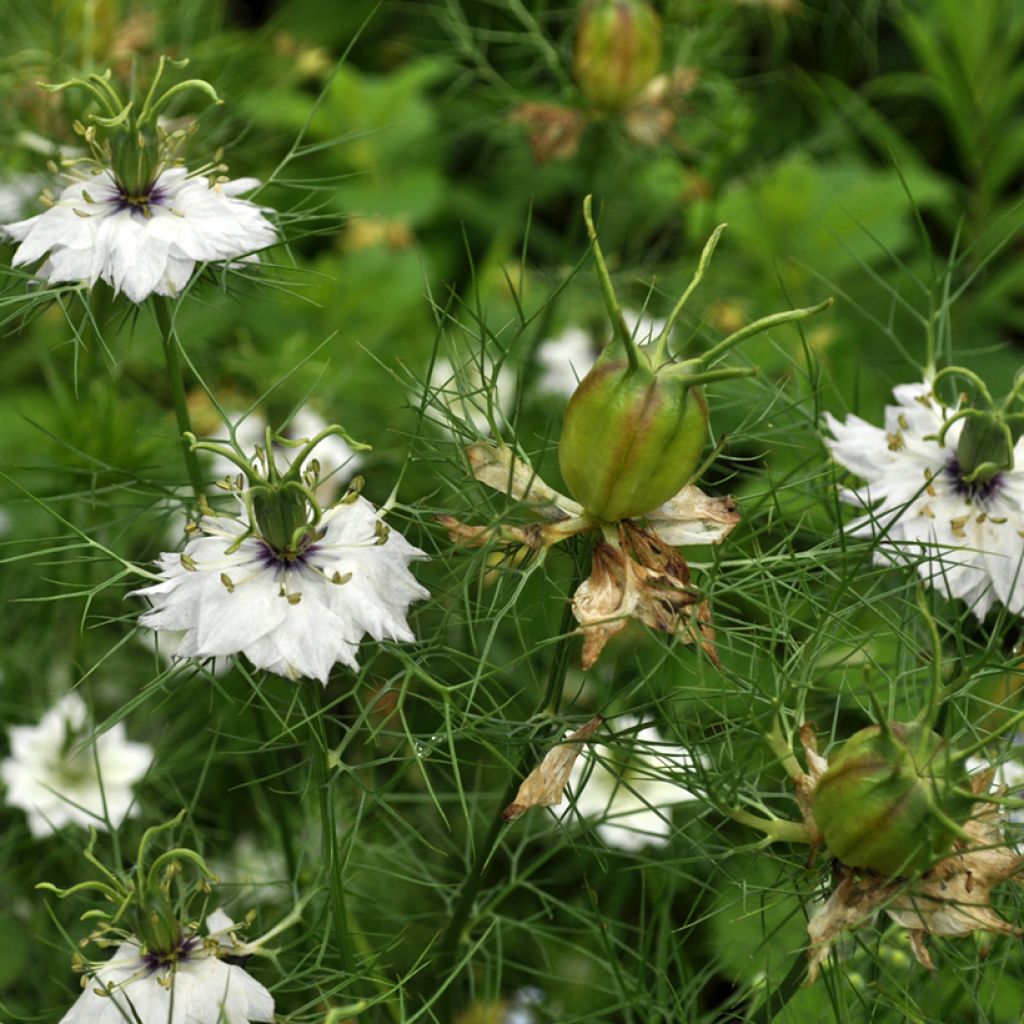

Love-in-a-mist Albion Green Pod Seeds - Nigella damascena
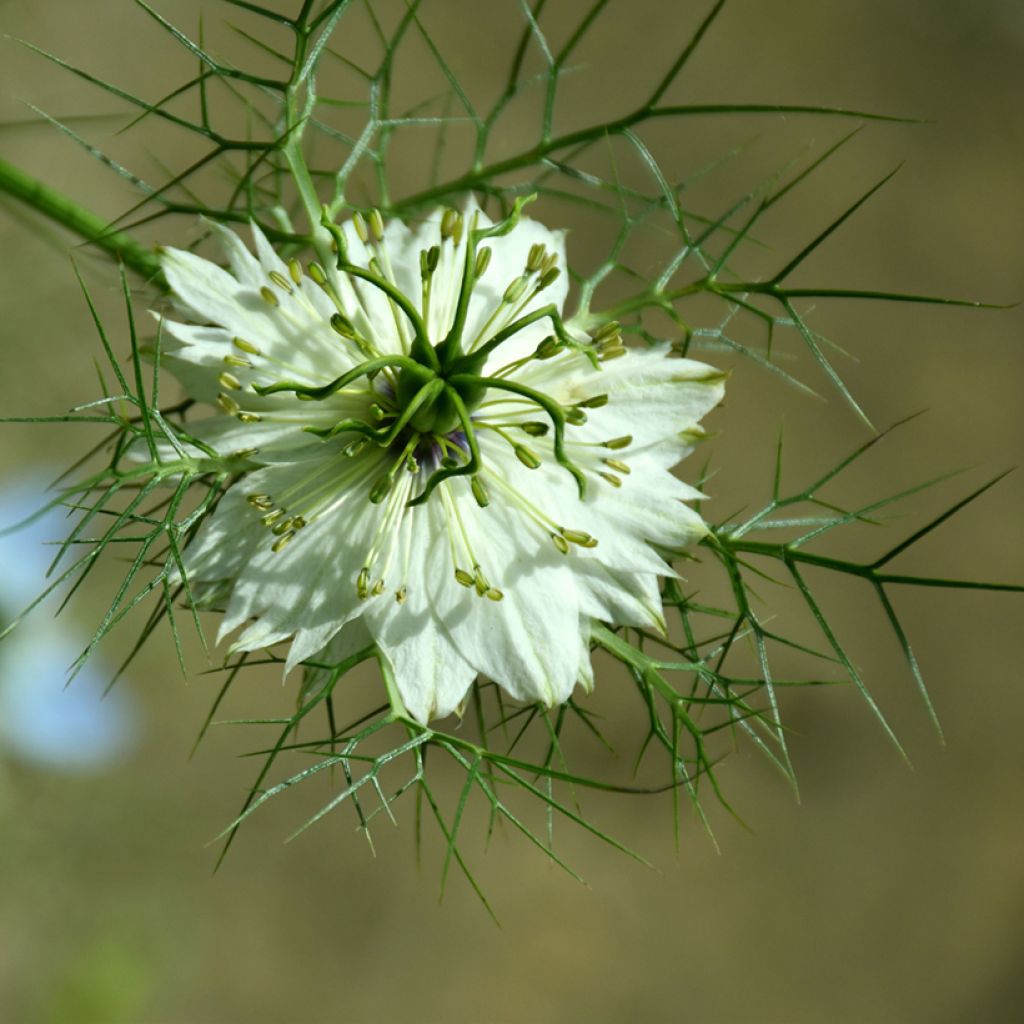

Love-in-a-mist Albion Green Pod Seeds - Nigella damascena
Love-in-a-mist Albion Green Pod Seeds - Nigella damascena
Nigella damascena Albion Green Pod
Love-in-a-mist, Devil-in-the-bush, Ragged lady
Special offer!
Receive a €20 voucher for any order over €90 (excluding delivery costs, credit notes, and plastic-free options)!
1- Add your favorite plants to your cart.
2- Once you have reached €90, confirm your order (you can even choose the delivery date!).
3- As soon as your order is shipped, you will receive an email containing your voucher code, valid for 3 months (90 days).
Your voucher is unique and can only be used once, for any order with a minimum value of €20, excluding delivery costs.
Can be combined with other current offers, non-divisible and non-refundable.
Home or relay delivery (depending on size and destination)
Schedule delivery date,
and select date in basket
This plant carries a 6 months recovery warranty
More information
We guarantee the quality of our plants for a full growing cycle, and will replace at our expense any plant that fails to recover under normal climatic and planting conditions.
Would this plant suit my garden?
Set up your Plantfit profile →
Description
Organic Nigella damascena 'Albion Green Pod' is a variety of Nigella with green pods, a discreet plant with tremendous charm. It produces a simple, white flowering above extremely delicate foliage. Once the flowers fade, curiously inflated, decorative capsules adorned with fine filaments appear. You can sow this selection in spring or autumn (in mild climates), staggering the sowings by 15 days to spread out the flowering. An unmissable annual, excellent for showcasing in the garden or in a vase!
Nigella damascena 'Albion Green Pod' is a horticultural selection. The species, Damask Nigella, is an annual plant of the Ranunculaceae family. Native to the Mediterranean basin (North Africa, Turkey, Middle East), it grows in uncultivated, rocky soils, along paths, in the most barren lands. It's a plant that self-sows spontaneously and generously. This very hardy and fast-growing plant overwinters as a young plant to form a beautiful tuft of feathery foliage in spring, like that of fennel.
The 'Albion Green Pod' Nigella reaches 50 to 60 cm above the ground. Flowering occurs from May to August, depending on the sowing date. Autumn sowings flower before summer in milder regions. Measuring 3 to 4 cm in diameter, its pure white flowers have 5 petaloid sepals and 5 or 10 petals that give them a rather airy appearance. The centre is occupied by 5 long green pistils with often curved tips, surrounded by yellow-green stamens. This nectar-rich flowering delights bees and other pollinators. After flowering, the pistils unite in a capsule that remains green, surrounded by the lace collar that enhances their beauty. These original, decorative seed heads contain a large number of small black seeds that germinate very easily in light soil. You can cut the stems that bear them before the capsules open and simply hang them upside down to dry and create superb dried bouquets.
Damask Nigella 'Albion Green Pod' is easy to grow, it blends perfectly with most other plants, in a rockery, on a slope, or in a flower bed. Its slightly wild appearance will also fit perfectly in a natural garden, where it will self-sow randomly. The lightness of Nigella is valuable in the garden. Sow it among your German irises, herbaceous peonies, and Oriental poppies. You can also quickly create a charming and colourful setting by mixing it with cosmos, poppies, or annual poppies.
Report an error about the product description
Love-in-a-mist Albion Green Pod Seeds - Nigella damascena in pictures


Flowering
Foliage
Plant habit
Botanical data
Nigella
damascena
Albion Green Pod
Ranunculaceae
Love-in-a-mist, Devil-in-the-bush, Ragged lady
Cultivar or hybrid
Other Nigella -Love-in-a-mist seeds
View all →Planting and care
Sowing Nigella damascena 'Albion Green Pod' is child's play. You can choose to sow in spring or late summer, as the seedlings are quite hardy and survive the winter without damage. Sow the seeds outside, directly in the ground. Prepare the soil well to loosen and lighten it before sowing. Sow in rows spaced 30 cm apart, at a depth of 6 mm. You can create beautiful flowering pots for spring by sowing the seeds in a cold greenhouse or on a porch in late summer and autumn. Thin out the sowing to leave only one plant every 20 cm.
Damascus Nigellas love the sun and tolerate drought well, as they adapt their life cycle to climatic conditions, flowering early in regions with dry summers, and throughout the summer in cooler climates. These plants self-seed very easily in the garden, but not always reliably.
Sowing period
Intended location
This item has not been reviewed yet - be the first to leave a review about it.
Similar products
Haven't found what you were looking for?
Hardiness is the lowest winter temperature a plant can endure without suffering serious damage or even dying. However, hardiness is affected by location (a sheltered area, such as a patio), protection (winter cover) and soil type (hardiness is improved by well-drained soil).

Photo Sharing Terms & Conditions
In order to encourage gardeners to interact and share their experiences, Promesse de fleurs offers various media enabling content to be uploaded onto its Site - in particular via the ‘Photo sharing’ module.
The User agrees to refrain from:
- Posting any content that is illegal, prejudicial, insulting, racist, inciteful to hatred, revisionist, contrary to public decency, that infringes on privacy or on the privacy rights of third parties, in particular the publicity rights of persons and goods, intellectual property rights, or the right to privacy.
- Submitting content on behalf of a third party;
- Impersonate the identity of a third party and/or publish any personal information about a third party;
In general, the User undertakes to refrain from any unethical behaviour.
All Content (in particular text, comments, files, images, photos, videos, creative works, etc.), which may be subject to property or intellectual property rights, image or other private rights, shall remain the property of the User, subject to the limited rights granted by the terms of the licence granted by Promesse de fleurs as stated below. Users are at liberty to publish or not to publish such Content on the Site, notably via the ‘Photo Sharing’ facility, and accept that this Content shall be made public and freely accessible, notably on the Internet.
Users further acknowledge, undertake to have ,and guarantee that they hold all necessary rights and permissions to publish such material on the Site, in particular with regard to the legislation in force pertaining to any privacy, property, intellectual property, image, or contractual rights, or rights of any other nature. By publishing such Content on the Site, Users acknowledge accepting full liability as publishers of the Content within the meaning of the law, and grant Promesse de fleurs, free of charge, an inclusive, worldwide licence for the said Content for the entire duration of its publication, including all reproduction, representation, up/downloading, displaying, performing, transmission, and storage rights.
Users also grant permission for their name to be linked to the Content and accept that this link may not always be made available.
By engaging in posting material, Users consent to their Content becoming automatically accessible on the Internet, in particular on other sites and/or blogs and/or web pages of the Promesse de fleurs site, including in particular social pages and the Promesse de fleurs catalogue.
Users may secure the removal of entrusted content free of charge by issuing a simple request via our contact form.
The flowering period indicated on our website applies to countries and regions located in USDA zone 8 (France, the United Kingdom, Ireland, the Netherlands, etc.)
It will vary according to where you live:
- In zones 9 to 10 (Italy, Spain, Greece, etc.), flowering will occur about 2 to 4 weeks earlier.
- In zones 6 to 7 (Germany, Poland, Slovenia, and lower mountainous regions), flowering will be delayed by 2 to 3 weeks.
- In zone 5 (Central Europe, Scandinavia), blooming will be delayed by 3 to 5 weeks.
In temperate climates, pruning of spring-flowering shrubs (forsythia, spireas, etc.) should be done just after flowering.
Pruning of summer-flowering shrubs (Indian Lilac, Perovskia, etc.) can be done in winter or spring.
In cold regions as well as with frost-sensitive plants, avoid pruning too early when severe frosts may still occur.
The planting period indicated on our website applies to countries and regions located in USDA zone 8 (France, United Kingdom, Ireland, Netherlands).
It will vary according to where you live:
- In Mediterranean zones (Marseille, Madrid, Milan, etc.), autumn and winter are the best planting periods.
- In continental zones (Strasbourg, Munich, Vienna, etc.), delay planting by 2 to 3 weeks in spring and bring it forward by 2 to 4 weeks in autumn.
- In mountainous regions (the Alps, Pyrenees, Carpathians, etc.), it is best to plant in late spring (May-June) or late summer (August-September).
The harvesting period indicated on our website applies to countries and regions in USDA zone 8 (France, England, Ireland, the Netherlands).
In colder areas (Scandinavia, Poland, Austria...) fruit and vegetable harvests are likely to be delayed by 3-4 weeks.
In warmer areas (Italy, Spain, Greece, etc.), harvesting will probably take place earlier, depending on weather conditions.
The sowing periods indicated on our website apply to countries and regions within USDA Zone 8 (France, UK, Ireland, Netherlands).
In colder areas (Scandinavia, Poland, Austria...), delay any outdoor sowing by 3-4 weeks, or sow under glass.
In warmer climes (Italy, Spain, Greece, etc.), bring outdoor sowing forward by a few weeks.






























